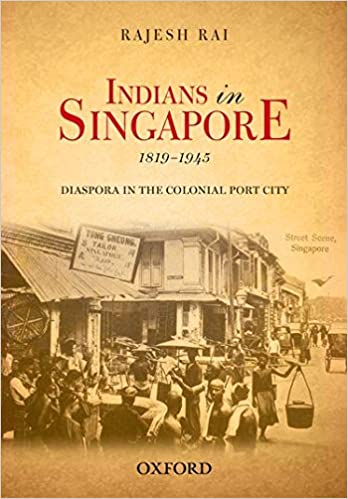
| Title: | Indians in Singapore, 1819 – 1945: Diaspora in the Colonial Port City |
| Author/s: | Rajesh Rai |
| Abstract: | Indians in Singapore, 1819 -1945 is the first comprehensive study of the Indian diaspora in colonial Singapore. The book provides a meticulous historical account of the formation of the diaspora in the colonial port-city, and its socio-political, religious and cultural development from the advent of British colonial rule to the end of the Japanese occupation.ÔÇïÔÇï |
| Date: | 1 December 2014 |
| More From: |
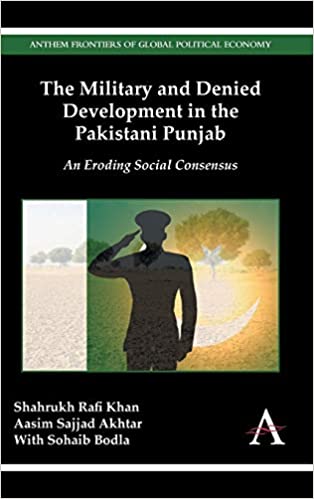
| Title: | The Military and Denied Development in the Pakistani Punjab |
| Author/s: | Shahrukh Rafi Khan, Aasim Sajjad Akhtar , Sohaib Bodla |
| Abstract: | This book focuses on the retrogressive agrarian interventions by the Pakistani military in rural Punjab and explores the social resentment and resistance it triggered, potentially undermining the consensus on a security state in Pakistan. Set against the overbearing and socially unjust role of the military in PakistanÔÇÖs economy, this book documents a breakdown in the accepted function of the military beyond its constitutionally mandated role of defence. Accompanying earlier work on military involvement in industry, commerce, finance and real estate, the authorsÔÇÖ research contributes to a wider understanding of military intervention, revealing its hand in various sectors of the economy and, consequently, its gains in power and economic autonomy.ÔÇï |
| Date: | 1 December 2014 |
| More From: |
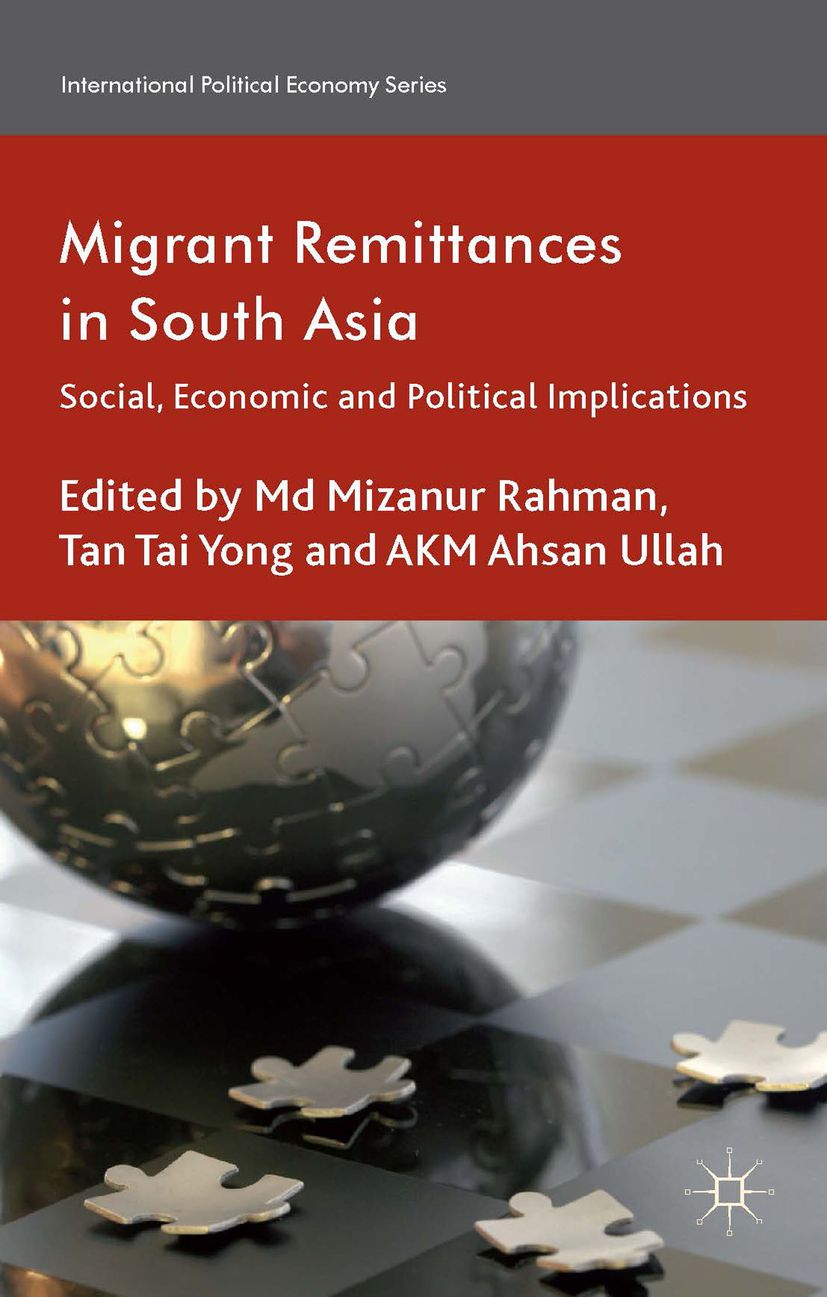
| Title: | Migrant Remittances in South Asia: Social, Economic and Political Implications |
| Author/s: | Md Mizanur Rahman, Tan Tai Yong , AKM Ahsan Ullah |
| Abstract: | Remittance is the most beneficial private transaction in the global economy. The South Asian region accounts for about one fourth of the global remittance flows destined for developing countries, contributing to over ten percent of the gross domestic product (GDP) of South Asia. This significant amount of remittance has enormous potential for development in the region. The volume, essentially a South Asian viewpoint, provides theoretical treatments of remittance and how its development potential is translated into reality. The authors meticulously delve into the diverse mechanisms through which migrant communities remit, investigating how recipients engage in the development process in South Asia.ÔÇï |
| Date: | 1 November 2014 |
| More From: |
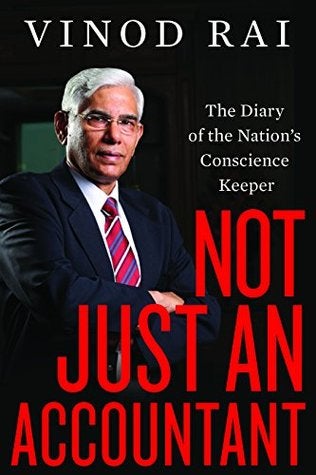
| Title: | Not Just An Accountant : The Diary of the Nation’s Conscience Keeper |
| Author/s: | Vinod Rai |
| Abstract: | Not just an accountant is an incisive, no-holds-barred account of Indias eleventh comptroller and auditor general and a symbol of the anti-corruption movement, Vinod Rai. Through a narrative, rich in anecdote and inside information, Rai sheds light on the major scams that shook the country. Among the case studies-chosen for the diversity of failures they highlight are - the procedural irregularities in the issuance of licenses for second generation spectrum allotment, the last minute quick-fixes in the conduct of the XIX commonwealth games, the loss of national resources while allocating coal blocks, the flouting of systems and the clear display of crony capitalism in the exploration of hydrocarbon and the tragic tale of civil aviation in India. Through these illustrations, Rai wishes to not only expose government malfeasance, but also probe the mandate of the CAG as a watchdog. Equally, he hopes to push for long-term solutions to corruption and bring home the urgent need for ethics-for the pursuit of excellence, accountability, probity and transparency within governments, the bureaucracy, corporate enterprises and public life. Interesting facts A blow-by-blow, explosive, yet thoughtful account that sheds new light on the scams that shook India - 2G, coalgate, civil aviation, the conduct of the XIX commonwealth games and hydrocarbon contracts. Explodes the myth of accountability in contemporary Indian governance. Written by the eleventh CAG of India and a symbol of the anti-corruption movement, Vinod Rai. Presents long-term solutions for the future, so as to contain procedural irregularities within the government and corporate enterprises. Provides a roadmap for good governance, important for the growth of the nation. |
| Date: | 10 October 2014 |
| More From: |
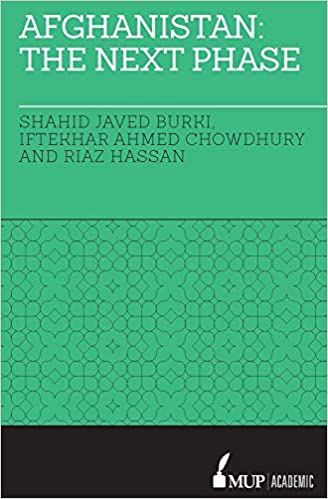
| Title: | Afghanistan: The Next Phase |
| Author/s: | Shahid Javed Burki, Iftekhar Ahmed Chowdhury and Riaz Hassan |
| Abstract: | Afghanistan: The Next Phase takes an in-depth look at the present situation in Afghanistan by placing it in the context of the country's tribal culture, history and demography. It considers its association with Pakistan, with whom it shares not only a long border, but also the Pashtuns, the largest ethnic component in its population and the rise of extremism in many parts of the Sunni world. The country faces an uncertain future as it has yet to develop the institutional structure that could transform it into an inclusive society. This book offers analysis of what the economic future holds for Afghanistan when the United States completes the withdrawal of combat troops at the end of 2014, when the flow of foreign capital that has helped the country is likely to be reduced significantly. The authors propose a formal association of ten to twelve countries to chaperone the country into the future. In the absence of such an arrangement, Afghanistan could once again become a failed state, which would have repercussions around the world. - See more at:https://www.mup.com.au/items/152291#sthash.n8nnKJva.dpufÔÇï |
| Date: | 1 October 2014 |
| More From: |
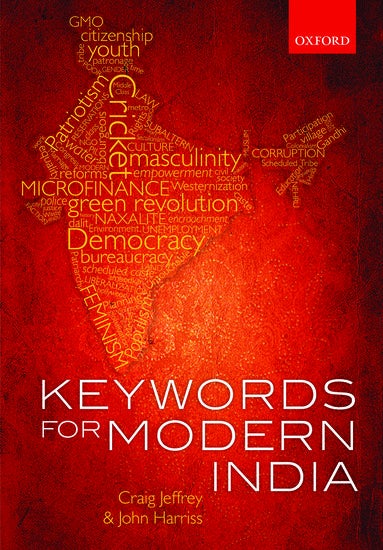
| Title: | Keywords for Modern India |
| Author/s: | Craig Jeffrey, John Harriss |
| Abstract: | What have English terms such as 'civil society', 'democracy', 'development' or 'nationalism' come to mean in an Indian context and how have their meanings and uses changed over time? Why are they the subjects of so much debate - in their everyday uses as well as amongst scholars? How did a concept such as 'Hinduism' come to be framed, and what does it mean now? What is 'caste'? Does it have quite the same meaning now as in the past? Why is the idea of 'faction' so significant in modern India? Why has the idea of 'empowerment' come to be used so extensively? These are the sorts of questions that are addressed in this book.
Keywords for Modern India is modelled after the classic exploration of English culture and society through the study of keywords - words that are 'strong, important and persuasive' - by Raymond Williams. The book, like Williams' Keywords, is not a dictionary or an encyclopaedia. Williams said that his was 'an inquiry into a vocabulary', and Keywords for Modern India presents just such an inquiry into the vocabulary deployed in writing in and about India in the English language - which has long been and is becoming ever more a critically important language in India's culture and society. Exploring the changing uses and contested meanings of common but significant words is a powerful and illuminating way of understanding contemporary India, for scholars and for students, and for general readers. |
| Date: | 1 August 2014 |
| More From: |
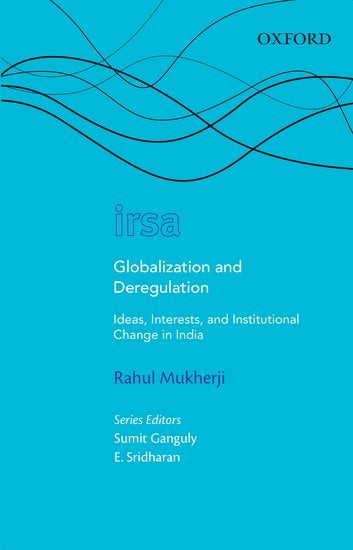
| Title: | Globalization and Deregulation: Ideas, Interests and Institutional Change in India |
| Author/s: | Rahul Mukherji |
| Abstract: | Globalization and Deregulation makes a contribution to the literature on economic change by exploring the institutional transition from state-led import substitution to deregulation and globalization in the world's most populous democracy-India. It proposes a largely internally driven 'tipping-point' model of economic change, which is in sharp contrast to the 'punctuated equilibrium' model of sudden exogenous shocks that drive transformations.ÔÇïÔÇïÔÇï Indian economists have provided excellent arguments about the need for change and have described changes that have occurred. This literature is essential for understanding how new economic ideas are born. But it does not explain the process of economic change, which is a political process. The best accounts of India's political economy explain why the institutions of government intervention within a closed economy were locked in a closed economy model. These accounts reveal why the dominant interest groups made political demands with substantial fiscal consequences. They do not engage with the issue of change. This book fills that gap by seriously engaging with India's economic history and the literature on institutional change. It is a contribution both to India's economic history and to systematic ways of thinking about economic change. |
| Date: | 1 May 2014 |
| More From: |

| Title: | Being Muslim in South Asia: Diversity and Daily Life |
| Author/s: | Robin Jeffrey, Ronojoy Sen |
| Abstract: | Being Muslim in South Asia contributes to the rich recent scholarship on contemporary Islam in South Asia. It provides insights into the controversies of the past 150 years over how South Asian Muslims ought to respond to the challenges of modernity and Western imperialism. Though such contests of ideas began with a few intellectuals, their consequences flowed through to touch the lives of ordinary people. The book also traces the processes, in train since British times, that have created large social categories out of diverse, dispersed communities. In the past, such communities shared only a common devotion, a sacred book and the duties the book enshrined. This volume highlights the diversity of peoples and practices among South Asians who follow Islam. Readers learn about aspects of those practices in the resolution of disputes, the education of children, the marriage of offspring and the recreations of leisure time. ÔÇï Oxford University Press:http://global.oup.com/academic/product/being-muslim-in-south-asia-9780198092063?cc=us&lang=enÔÇï |
| Date: | 1 May 2014 |
| More From: |
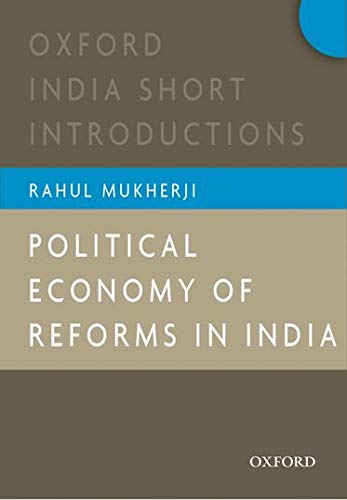
| Title: | Political Economy of Reforms in India |
| Author/s: | Rahul Mukherji |
| Abstract: | Political Economy of Reforms in India discusses the political economy of the country's growth, globalization, and welfare. It finds that the political economy of growth and globalization are intimately connected. And, the political economy of welfare, though dependent to a much greater extent on state intervention than growth, is critically dependent on the growth process. Governments and markets can both fail to deliver. Understanding the political process of economic change is critical for evolving a view about the importance of governments and markets in economic activity. ÔÇï This book highlights the critical importance of political economy during the course of development. Economic ideas about growth, globalization, and welfare have to traverse a political distance before citizens can benefit from economic institutions and policies. Mukherji reviews the importance of various factors that affect economic change in India and finds that the way the government, especially its technocrats, think is important for producing change. Readership: Primary Market: University and college departments of political science/ politics, economics, business economics/ business administration; public policy schools. Secondary Market: Students, teachers, and researchers of political science/ politics, economics, business economics/ business administration; economists; civil servants, particularly those involved in policymaking; NGOs.ÔÇï |
| Date: | 1 April 2014 |
| More From: |
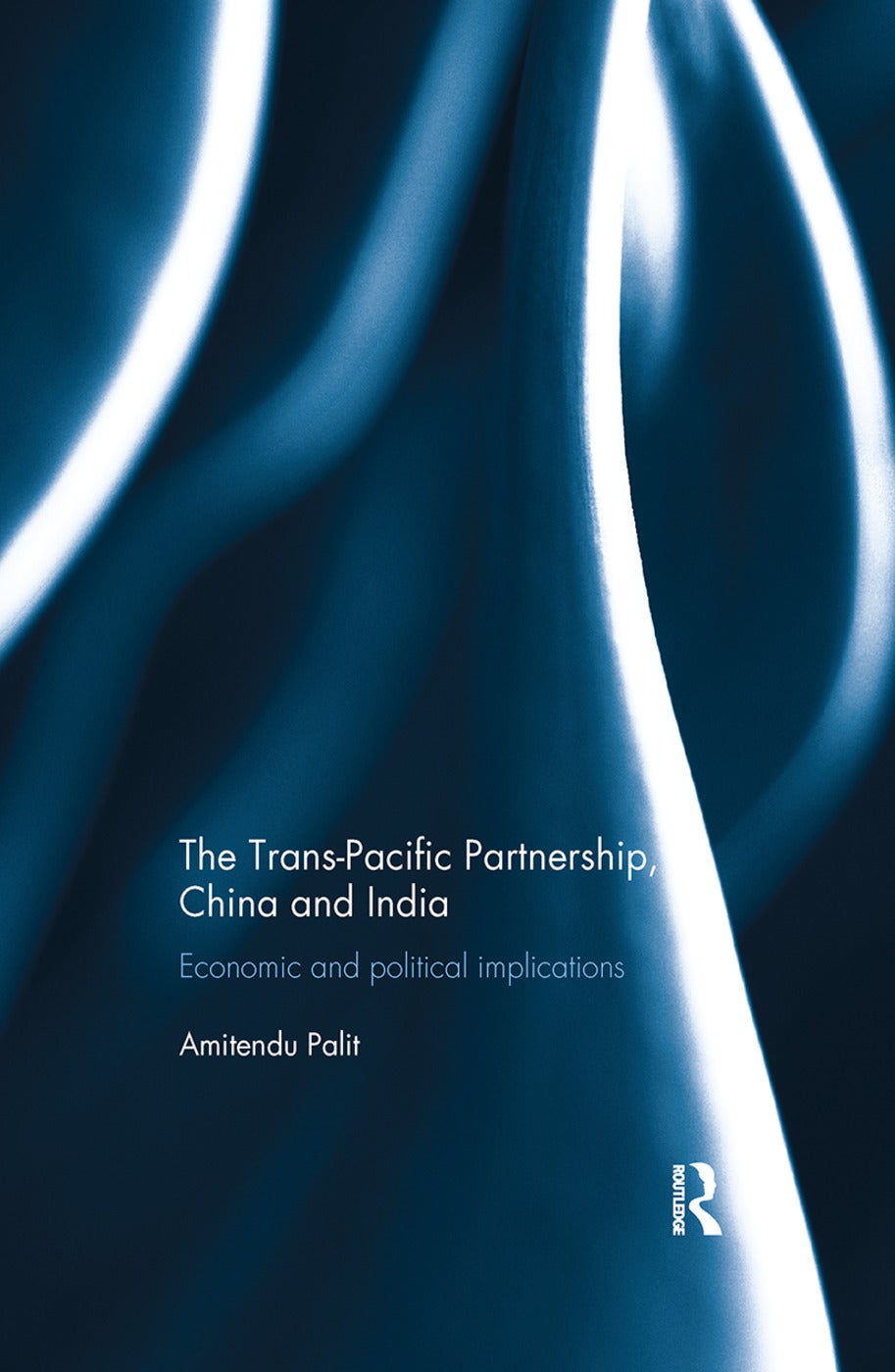
| Title: | The Trans-Pacific Partnership, China and India: Economic and Political Implications |
| Author/s: | Amitendu Palit |
| Abstract: | The United States and 11 other countries from both sides of the Pacific are currently negotiating the Trans-Pacific Partnership (TPP). The agreement is expected to set new benchmark for international trade through its comprehensive coverage of issues and binding regulations. It is expected to eventually mature into a regional trade agreement covering the entire Asia-Pacific. As of now, it does not include China and India, the two largest emerging markets and regional economies. The TPP has generated controversy for its excessive emphasis on trade issues, which have remained unresolved or unaddressed at the WTO due to differences between developed and emerging markets. It has also been criticized for adopting a negotiating style reflecting the US regulatory approach to international trade and also as a geo-political strategy of the US for supporting its strategic rebalancing towards Asia. From both economic and geo-political perspectives, the TPP has various significant implications for China and India that are examined in the book. This book sheds light on how China and India's entries in the TPP are mutually beneficial and how both countries can gain from the TPP by gaining preferential access to large markets and using it as an opportunity for introducing more outward-oriented reforms. The book also cautions that US must reconcile to the rebalancing of economic power within the grouping that will occur following the entries of China and India. Otherwise, the TPP and China and India might walk divergent paths and trade and regional integration in Asia-Pacific may not ever converge. This book will interest anyone who wishes to learn more about the TPP and its future implications and challenges and China and India's roles in global and regional trade.ÔÇï |
| Date: | 5 January 2014 |
| More From: |
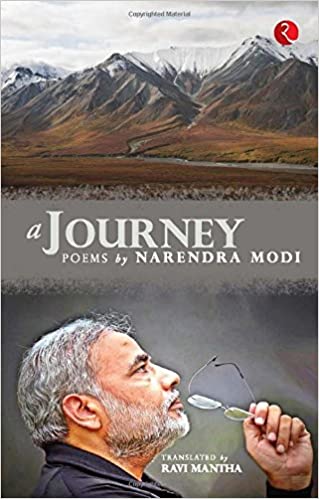
| Title: | A Journey: Poems by Narendra Modi (translated work in English) |
| Author/s: | Ravi Mantha |
| Abstract: | Devotion and dedication, love and longing, strength and vulnerability, all find expression in Narendra Modi's poetry. This English translation of verses originally written in Gujarati transports us into the poet's mind-his voice, his vision and his thoughts.While the story of Mr Modi's rise from humble beginnings to high political office is well documented, what is not well known is his journey in verse. |
| Date: | 4 January 2014 |
| More From: |
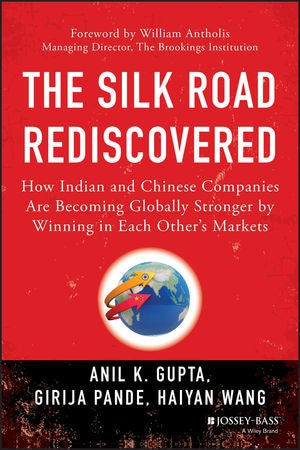
| Title: | The Silk Road Rediscovered: How Indian and Chinese Companies Are Becoming Globally Stronger by Winning in Each Other’s Markets |
| Author/s: | Anil K Gupta, Girija Pande , Haiyan Wang |
| Abstract: | A roadmap for understanding the business challenges and opportunities in China. By 2025, China and India will be two of the world's four largest economies. By then, economic ties between them should also rank among the ten most important bilateral ties worldwide. Their leaders are well aware of these emerging realities. In May 2013, just two months after taking charge, Premier Li Keqiang left for India on his first official trip outside China, a clear signal of China's foreign policy priorities. The Silk Road Rediscovered is the first book ever to analyze the growing corporate linkages between India and China. Did you know that: India's Mahindra is the fifth largest tractor manufacturer in China? Tata Motors' Jaguar Land Rover unit is the fastest growing luxury auto seller in China? India's NIIT is the most influential IT training brand in China? China's Huawei has its second largest R&D center in Bangalore and employs over 5000 people in India? Shanghai Electric earns its largest revenues outside China from India? As these developments illustrate, pioneering Indian and Chinese companies are rediscovering the fabled Silk Road which joined their nations in ancient times. Winning in each other's markets is also making them stronger and whetting their appetite for further global expansion. |
| Date: | 4 January 2014 |
| More From: |
Load more


